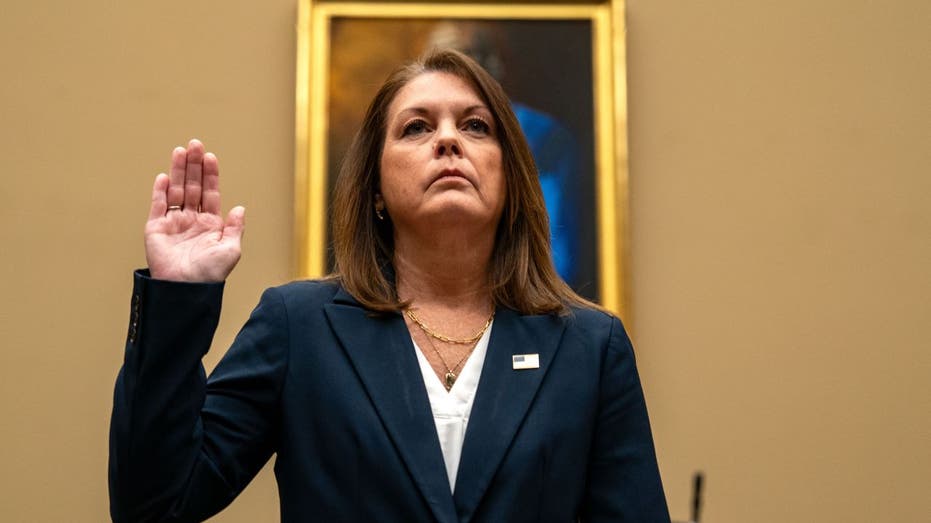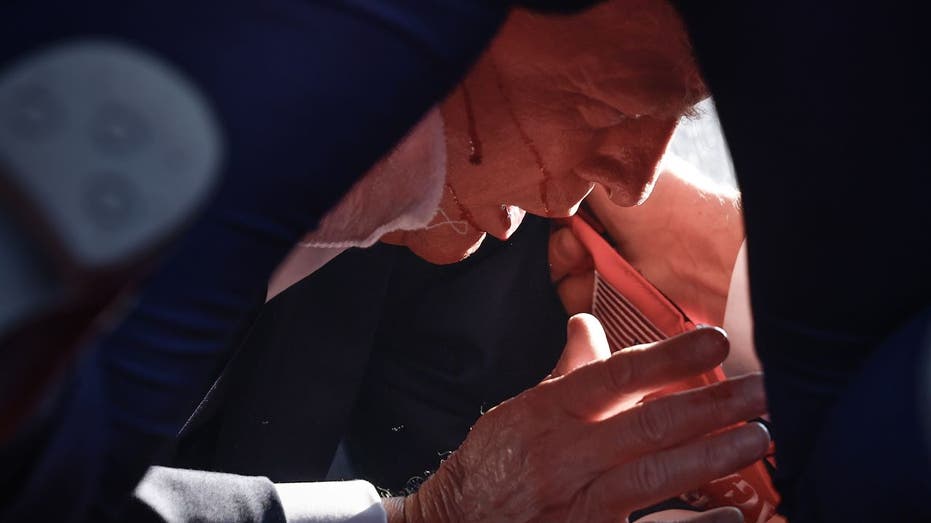Lawmakers pressed the Secret Service director about the agency’s staffing issues and relatively high levels of turnover during a House committee hearing on Monday in the wake of the recent attempted assassination of former President Trump.
Secret Service Director Kimberly Cheatle testified before the House Oversight and Accountability Committee amid bipartisan calls for her to resign, and she told lawmakers that she takes “full responsibility for any security lapse of our agency” and added that “We must learn what happened, and I will move heaven and Earth to ensure that an incident like July 13th does not happen again.”
Cheatle said she wasn’t going to get into “the specifics of the numbers of personnel that we had there, but we feel that there was a sufficient number of agents assigned” to the Trump rally venue in Butler, Pennsylvania, where the assassination attempt occurred on July 13.
Lawmakers pressed the Secret Service director about the agency’s staffing levels and turnover issues that have posed challenges over the last decade despite its budget increasing. That staffing shortage has prompted the agency to marshal its resources, in some cases turning down requests for assets or to leverage state and local agencies to fill in gaps it can’t cover.
SECRET SERVICE ADMITS LEANING ON ‘STATE AND LOCAL PARTNERS’ AFTER CLAIM IT IGNORED TRUMP TEAM’S PAST REQUESTS
Rep. Stephen Lynch, D-Mass., told Cheatle that the committee’s last investigation of the Secret Service found the agency “was experiencing a staffing crisis that poses ‘perhaps the greatest threat to the agency'” and asked if the staffing crisis was still posing problems.
In her opening remarks, Cheatle said that since becoming Secret Service director she has been “focused on resourcing our personnel, obtaining technology, increasing staff levels and evaluating our hiring processes and training facilities.”
“As of today, the Secret Service has just over 8,000 employees. We continue to hire, knowing that we need to ensure that we keep pace,” Cheatle said. “We are still striving towards a number of 9,500 employees, approximately, in order to meet future and emerging needs.”
FORMER SECRET SERVICE AGENT WARNS AGENCY ‘STRETCHED THIN’ WITH NEW RESPONSIBILITIES, LACK OF MANPOWER

The Secret Service employed about 7,600 personnel in 2021 and planned to grow that figure to nearly 10,000 employees by fiscal 2026, although it remains around 8,000 personnel, according to a report by Government Executive.
The Secret Service told FOX Business in a statement, “The agency has increased the number of employees this fiscal year and, as of the end of June, has approximately 8,000 employees. As the director said, the agency’s goal is to increase staffing to 9,500 employees by fiscal year 2028. Additionally, the total budget has increased from approximately $3 billion in fiscal year 2023 to approximately $3.3 billion in fiscal year 2024.”
REP. MACE CALLS ‘BULLS—‘ ON RESPONSE FROM SECRET SERVICE DIRECTOR CHEATLE
Rep. Virginia Foxx, R-N.C., pointed to figures that showed the number of Secret Service personnel assigned to protect the president and other senior officials declined by about 350 from 4,027 in 2014 to 3,671 this year, adding, “Clearly, a lack of financial resources is not to blame for the staffing shortage.”
“As I have returned as director of the agency, we have had an increase in hiring and staffing, had an increase in resources, and we are committed to continue to hire so that we can be staffed appropriately so that we can continue to meet the dynamic mission that we have,” Cheatle said.

A bipartisan report prepared by the Oversight Committee in 2015 found that among Secret Service personnel in the agency’s Uniformed Division (UD), more than half of UD officers who left the agency and completed separation surveys were between the ages of 26 and 30, while nearly 74% of officers who left the agency had between zero and five years of service.
“This marks a significantly high level of turnover among young, inexperienced officers and presents a major challenge to USSS, which has to onboard officers faster when the pens they just hired are leaving,” the committee wrote at the time. “It also prevents USSS from consistently developing young UD officers into more experienced mid- and senior-level officers and perpetuates a young and inexperienced workforce.”

Secret Service personnel have consistently given the agency poor marks over the last decade, based on the findings of the Best Places to Work in the Federal Government survey conducted by Partnership for Public Service.
In 2023, the Secret Service ranked 413 of 459 subcomponent agencies in the federal government in terms of employee engagement and satisfaction – a metric in which the agency has ranked in the bottom quartile of federal agencies every year since 2013.
The survey covers areas that include effective leadership, diversity, equity, inclusion and accessibility, as well as other categories like pay, recognition, professional development and mission match.
The Secret Service ranked in the bottom quartile in all of those categories; in particular, the agency’s senior leadership ranked 403rd in terms of effective leadership, while employee recognition ranked 420th and professional development 400th. The agency’s best rankings were 347th in pay, 348th in accessibility, 353rd in mission match and 361st in effective leadership by supervisors.
Read the full article here











